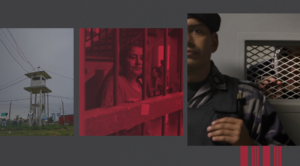| In waging its global “war on drugs,” the United States has exported its draconian drug laws, contributing to staggering levels of incarceration across Latin America. People who use drugs are stigmatized and criminalized, while prisons are filled with men and women accused or convicted of low-level, non-violent drug offenses that carry harsh sentences. These punitive policies have a disproportionate impact on women, people of color, and other communities facing systemic inequalities. Those behind bars generally live in squalid conditions without access to adequate food, water, health care, or other basic necessities.
A recent report by the UN Working Group on Arbitrary Detention documents high rates of arbitrary detention for those suspected of drug offenses. In addition, pre-trial detention is the norm for those accused of drug offenses in much of Latin America, regardless of the gravity of the transgression allegedly committed, in contradiction of international standards. In many Latin American countries, drug laws prohibit people deprived of liberty from having access to benefits such as early release or alternatives to incarceration. Numerous countries have even excluded anyone held for drug offenses from being released from prison due to the COVID-19 pandemic. Research by the Collective for the Study of Drugs and the Law (CEDD) shows that the use of these practices is one of the main factors fueling over-incarceration and prison overcrowding in the region.
The reliance on criminalization and incarceration—a core strategy of the U.S.-led drug war—has failed dramatically to reduce illegal drug networks. But increased incarceration has caused tremendous harm not only to those deprived of liberty, but also to their families and communities. Alternative approaches are desperately needed to dramatically reduce the number of people in and going into prison for drug offenses.
Please join WOLA for the third installment in a six-part webinar series examining the consequences of prohibition and the drug war for Latin America and the Caribbean, and identifying alternative approaches consistent with protecting human rights, promoting public health and achieving social justice.
Event Details:
Tuesday, September 14, 2021
10:30 a.m. – 12:00 p.m. EDT |



